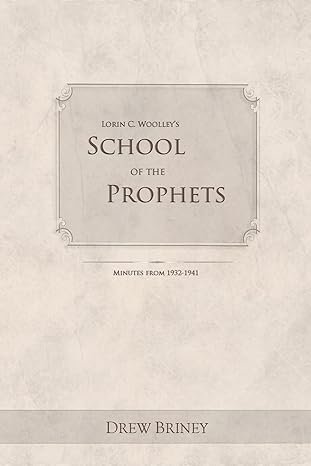PHOTO: Drew Briney, author and genre-blender extraordinaire, whose layered stories explore the space between justice, myth, and technology.
A Visionary Mind Blending Fantasy Science And Philosophy
Drew Briney discusses psionic dragons, moral complexity, legal realism, and the balance of fact and fiction in crafting his richly imaginative, genre-blending stories that challenge and expand conventional boundaries.
Drew Briney writes with a restless, uncontainable imagination—one that delights in shattering genre walls and exploring the moral grey space where technology and magic meet. In his worlds, the future is not a distant abstraction but a living, volatile force, infused with psionic dragons, memory-implanted assassins, and post-apocalyptic societies grappling with alien wisdom. Yet beneath the spectacle, there’s a deeply human core—his characters wrestle not only with their enemies, but with conscience, identity, and hope.
A former lawyer and scholar of ancient texts, Briney brings a rare intellectual weight to his fiction. His experience in the courtroom lends his writing an unflinching realism—evil is systemic, often banal, and heartbreakingly familiar. His fiction does not offer easy victories. Instead, it asks the essential question: how does one retain humanity in a world engineered to strip it away?
With Moon 514, Unproven, and Assassin Hunter, Briney traverses landscapes both interstellar and intimate. His narratives are ambitious in scope yet intricately personal, woven through with a sense of moral urgency. Whether navigating the treacherous logic of genetically modified survival or the fragile beauty of psionic communion, his work insists that imagination, at its best, is also inquiry—into justice, memory, and what it means to endure.
Your works often feature morally complex characters; how do you develop such characters to resonate with readers?
It might be true to answer that I have a degree in philosophy and a lifelong interest in psychology and world religions but it’s probably more true to credit my methodology in that area to David Farland – a very kind and generous mentor. When I was writing Unproven, I asked him about managing a large cast. How do you keep each character engaging on a personal level? He advised that I review each scene and ask how each character would respond to what happened (whether or not they were present). That exercise truly opened my eyes. Immediately, small characters evolved from flat sidekicks to intensely passionate supporters, reluctant, but inevitable betrayers, and subversive opportunists evolving into a vile enemy. The more I explored that concept, the more I received reviews commenting on how readers feel emotionally immersed in my stories. That’s a glorious payoff for a process that is both invigorating and fun.
What inspired the creation of the psionically gifted dragons in Unproven, and how do they challenge traditional fantasy tropes?
Although I’m indisputably a nerdy sci-fi/fantasy fan, I avidly avoid time-worn tropes so if I’m writing about dragons, I’m searching for something unusual, unexpected. Dragons frequently speak common tongue in fantasy literature. I’ve long thought that wouldn’t work well in “reality” so I have to ask: what might work and make them scarier? Which is more terrifying: a dragon who reasons and speaks your language or one who vaguely communicates through psionic images and feelings? Camouflaging dragons are terrifying enough (even if they’re small), but erratically appearing camouflaging dragons that communicate through images and feelings generate a higher level of mystique and, in this case, terror. This ambiguity in communication also shrouds their level of intelligence, which makes them less trustworthy and more volatile– elements that enhanced the story.
How does your background in law influence the ethical dilemmas and societal structures depicted in your novels?
That’s a great question – and a painful one. Practicing law decimated my naivete. What I once believed was fanciful fodder for entertainment unveiled itself as reality. I interviewed a man who stabbed someone over a cell phone dispute and another man who confessed he was happy to kill anyone if his mentor asked him to – and seemed hopeful for the opportunity. Playground bullies transform into powerful local politicians who persecute and devastate families of people they don’t like. Rich people, through litigation, prey upon the poor. Courts routinely favor the resourceful and wealthy over the upright. I quit practicing because of the mean-heartedness I continually observed. Evil at every level no longer felt fabricated. Accordingly, my characters’ struggles no longer felt fictitious. They grew deeply real, ominous, and personal, and made me wonder: how can my character, no matter how powerful, have any hope of overcoming a hidden enemy who may turn out to be more monstrous, powerful, or well-connected than anyone imagined?
Blaze’s transformation in Moon 514 involves genetic engineering and alien magic; how do these elements critique human nature and survival?
I am fascinated with transhumanism and the concept of biological perfection. The potential for abuse and for good are both undeniably profound. Dichotomies like these offer ripe opportunities for exploration. Although abuses will occur, I envision a day when technology becomes a tool that allows us to explore higher levels of morality – much like Star Trek. On the flip side, I believe technological advancements need a deeper connection with nature. Thus, Moon 514 (my Assassin Hunter series, and Sea Dragon Apocalypse) explore a future founded upon nature-inspired, environmentally friendly tech that enriches lives. Although technologically and morally superior, Moon 514 aliens evolved through an exploration of nature-based magic. That context makes the aliens more formidable opponents while also bestowing them with wisdom humans need – a combination that requires us to reevaluate our need to grow in morality as much as our need to progress technologically.
Moon 514 blends post-apocalyptic themes with magical elements; what motivated you to merge these genres?
For context, I began writing Moon 514 on Wattpad to support my daughter who was posting short stories there so my intended audience was YA. While I enjoyed Maze Runner and Hunger Games, I believe our youth need more literature offering a hope-filled future beyond a good person who kills bad people. George Lucas birthed an entire universe based upon a similar vision. So, adding to my long-held belief that a key element of Star Wars success came from blending technology with a dash of magic, Moon 514 began to take form.
With your experience in both historical non-fiction and speculative fiction, how do you balance factual accuracy with creative storytelling?
I should probably be ashamed to admit that I don’t do much storytelling in my historical works. One side of my personality is very OCD and loves facts, mysteries, and organizing all of that into a presentation to discover “what really happened.” For me, storytelling triggers a different mindset where precise details no longer matter and exaggeration and embellishments are fun – which is totally unacceptable when writing history. Personally, I have to stay in my left brain where history is as error-free as possible.
Fiction, on the other hand explores truth from a different angle. Exploring morality, human nature, and various other philosophical concepts has always been the meat of storytelling. I love that aspect. Studies show sci-fi/fantasy readers are more empathetic and more intellectually developed and educated from moral perspectives than non-readers of those genres so fiction champions truth in a very different way – by expanding our minds to consider new ideas, new perspectives, new world-views.
Writing in both genres is very helpful for me. When I feel like fiction is nothing more than trivial entertainment with no enduring value, I write non-fiction that grounds me in a sometimes stuffy reality and when that becomes depressing or boring, my right brain reignites buried ideas explode until I commit them to paper. That keeps inspiration invading from both directions so I never lack for ideas. On any given day, I have at least five books in each genre begging to be written.
What advice would you offer to aspiring authors looking to blend complex themes like technology, magic, and morality in their writing?
If publishing is the goal, outline your idea if you need to but read more before you write very much. I’m currently writing Sea Dragon Apocalypse, a high-tech sci-fi/fantasy mashup. It’s surprisingly difficult to sound authentic in both genres and also, to not allow one genre to invade your tone in the other genre, so be certain you’ve critically and carefully read at least a dozen of the most representative works in each genre before merging the two. Netflix isn’t enough. Read. Compelling reviews are crucial to success in today’s market. Don’t give readers an excuse to rate your book poorly because you were too excited to pen your ideas before doing your homework.
That said, and more importantly, character growth and qualities that make characters conflicted and human is the glue that binds it all together. If a reader identifies with your lead sci-fi character and your lead fantasy character and feels like they’re experiencing everything by their side, they’ll be more forgiving of mistakes. One of the greatest compliments I ever received was a beta reader telling me she couldn’t decide which lead character (sci-fi or fantasy) she liked more as they both felt like her favorite when she was reading their respective stories.
EDITOR’S CHOICE
Lorin C. Woolley’s School of the Prophets reveals rare meeting minutes, documenting prophetic teachings, leadership conflicts, and the foundations of Mormon fundamentalist movements.



